In uncounted speeches before diverse audiences, Ehud Danoch, Israel’s consul general in Los Angeles, would never have expected such an enthusiastic reception.
Addressing 16,000 Pentecostal Christians in the jam-packed L.A. Sports Arena last week, Danoch pledged, as he has done time and again, that Israel would never give in to terrorism.
His listeners, a rainbow of races and ages, rose as one, raised their arms heavenward and shouted “Hallelujah,” while two dozen large shofars joined in the joyful noise unto the Lord.
A few minutes later, the scene repeated — when Danoch mentioned Israel’s upcoming 58th Independence Day celebration. Cheers even rung out from beyond the building, with an overflow audience of 4,000 in the adjoining L.A. Memorial Coliseum joining in as they watched on giant video monitors.
For Pentecostal and Charismatic Christians, believed to number some 500 million to 600 million around the world, the exhilaration and exuberance of the reception was a trademark of their worship and faith, and a reaffirmation of their fervent support for Israel.
The all-day prayer service at the Sports Arena climaxed a weeklong celebration by 35,000 of the faithful from 113 countries, who had gathered for the Azusa Street Centennial and Revival in downtown Los Angeles. The numbers were impressive, though considerably less than the 100,000 predicted in advance publicity.
Pentecostals trace the official beginning of their “belief system” to April 1906, when William Seymour started preaching at a ramshackle building at 312 Azusa St. in what is now Little Tokyo.
The remarkable Seymour, the son of slaves, was contemptuously described by that era’s Los Angeles Times as “a one-eyed illiterate Negro preacher,” who attracted throngs of worshippers “breathing strange utterances and mouthing a creed which it would seem no sane mortal could understand.”
Seymour’s basic doctrine remains the common bond among many independent Pentecostal and Charismatic groups and churches. They affirm that through baptism they receive the spiritual gifts of speaking in “unknown” tongues, prophesy, healing and performing of miracles, as an inheritance from Jesus’ first apostles.
An official pamphlet at the Centennial described the revival’s central message, as fostered by Seymour, as “receiving Holy Spirit Baptism with the accompanying initial evidence. Shouting, dancing, ‘falls under the power,’ weeping and prophetic testimony and speaking in tongues.”
While Seymour’s first followers were poor blacks, he soon attracted many white adherents, in the process forming the first inter-racial church in Los Angeles.
The common bond of the fastest growing segment of Christianity in the United States, Asia and Africa is the hunger for an emotional, spontaneous expression of faith, and a rejection of the formal, institutionalized worship of the old, established denominations.
The focus of the centennial celebration was on exuberant worship services and prayer. For these unshakeable believers in the literal truth of the Jewish and Christian bibles, a kinship to Jews and especially Israel is a given.
An almost constant refrain was the admonition that he “who blesses Israel will be blessed, and he who curses Israel will be cursed.”
A concrete indicator could be found in the vast exhibit at the L.A. Convention Center. Amid the booths selling Christian videos, books, T-shirts and $20 Virtuous Woman dolls, were stands offering Israeli-made shofars and tallitot, and banners urging shoppers to “pray for the Peace of Jerusalem. They Shall Prosper Who Love Thee.”
A news stand featured an Israel Today magazine, whose color cover featured, instead of the usual mayhem, a photo of a young Israeli solder leading a wizened Arab man across the street.
The staff of the Israel Ministry of Tourism assisted potential pilgrims who sought “to set foot on the land where Jesus trod,” and the effort to reach Christian travelers seems to be paying off. According to government statistics, of the 1.9 million tourists to Israel last year, 48 percent were Christians, with about a quarter of that number identified as “pilgrims.”
The official “Israel track” at the Centennial was organized by the International Christian Embassy Jerusalem (ICEJ), whose centerpiece consisted of the pageant “The Covenant,” performed twice daily by a 50-person cast of Christians who live in Israel.
In a remarkable feat of chronological compression, the two-hour show, in English and Hebrew, spanned 4,000 years of Jewish history, from Abraham and Moses through the Babylonian exile, the Inquisition and Holocaust, the birth of Israel and the present.
It is unlikely that any current Jewish community center or Israeli high school would dare to present so idealized and chauvinistic a drama, but the audience of white, black, Latino and Asian Christians from around the world loved it.
The emotional highlight came at the end. As the cast sang the opening bars of “Hatikvah,” the entire audience stood and sang the anthem, in Hebrew, with a fervor I haven’t experienced since the state’s struggle for independence in 1948.
Despite the unstinting support of Israel by evangelicals in the United States, Europe and Asia (the world’s largest Christian congregation, I was told, is in Seoul, South Korea with 750,000 members), many American Jews view the movement with skepticism. One factor is the conservative politics and social views of Pentecostals and other evangelical Christians, which are hardly in tune with a predominantly liberal Jewish community. There is also widespread suspicion that these Christians are fueled by the belief that at the end of days, when Jesus returns, all Jews will be converted, if not killed, in line with the “replacement theology” that Christians have replaced Jews as God’s chosen people.
Malcolm Hedding, the South-African born IJEC executive director, has obviously heard such reservations repeatedly and was at pains to dispel the “misconceptions,” as he put it. Pentecostals, he said, have no history of anti-Semitism and have always rejected replacement theology.
However, when asked about the presence of some messianic or Christian Jews at the meeting, Hedding said that he “would fight for their right” to accept Christianity. The issue of individual conversion is distinct from support for Israel.
“Our love for Israel follows God’s promise to his people and is based on the prophecies of the bible,” he said.
But if God promised the entire land of Israel to the Jews, do fundamentalists oppose abandoning Gaza or the West Bank? Hedding was asked.
“No, we do not meddle in Israel policies,” he responded. “It is up to the Israeli government to determine its boundaries.”
David Brog, who spent the last four years researching and writing his just -published book “Standing with Israel: Why Christians Support the Jewish State,” backed Hedding’s assertions from the perspective of a Jewish writer.
“We have a hard time accepting that with the growth of fundamentalism, many Christian churches have undergone an organic change in their attitude toward Jews, even more profound than the change in Catholic teaching brought about by Vatican II,” said Brog in a call from Washington.
“It would be a big mistake to reject a coalition with these Christians because we might differ, say, on abortion or gay marriage,” Brog added. “I worked for seven years as a counsel and chief of staff for the U.S. Senate Judiciary Committee, and learned about coalitions. You form a coalition to push the one issue you agree on.”
IJEC leaders and spokesmen seemed largely unfamiliar with the makeup and leadership of the Jewish community in Los Angeles. Although told that a number of Jewish religious and lay leaders would attend a special reception, the only Jews present were Simon Erem, an Israeli-American long active in interfaith activities, and Moshe Bar-Zvi, CEO of the Jerusalem Post, which recently launched a Christian edition of the newspaper.
One meeting did take place Friday morning at The Jewish Federation building on Wilshire Boulevard between Hedding and some 30 Jews, predominantly conservative and, except for philanthropist Newton Becker, not in the top leadership ranks.
Larry Greenfield, California director of the Republican Jewish Coalition, said he was particularly impressed by the work of Hedding and other Christian Zionists in defending Israel’s position in Europe and in fighting against the divestment by some American and British churches from companies doing business in Israel.
Allison Taylor, associate director of the American Jewish Congress’ Western region, said she wished that “Jews would be as pro-Zionist as Hedding and share his deep commitment to Israel.”
Barbara Yaroslavsky, one of the few liberal participants, said she welcomed the outreach to the Christian community, but needed to learn more about the relationship.
For his part, Consul General Danoch, after his talk to 16,000 at the Sports Arena, harbored no doubts.
“I really felt their warmth, friendship, and love for Israel,” he said. “We don’t often get that feeling in some other parts of the world.”







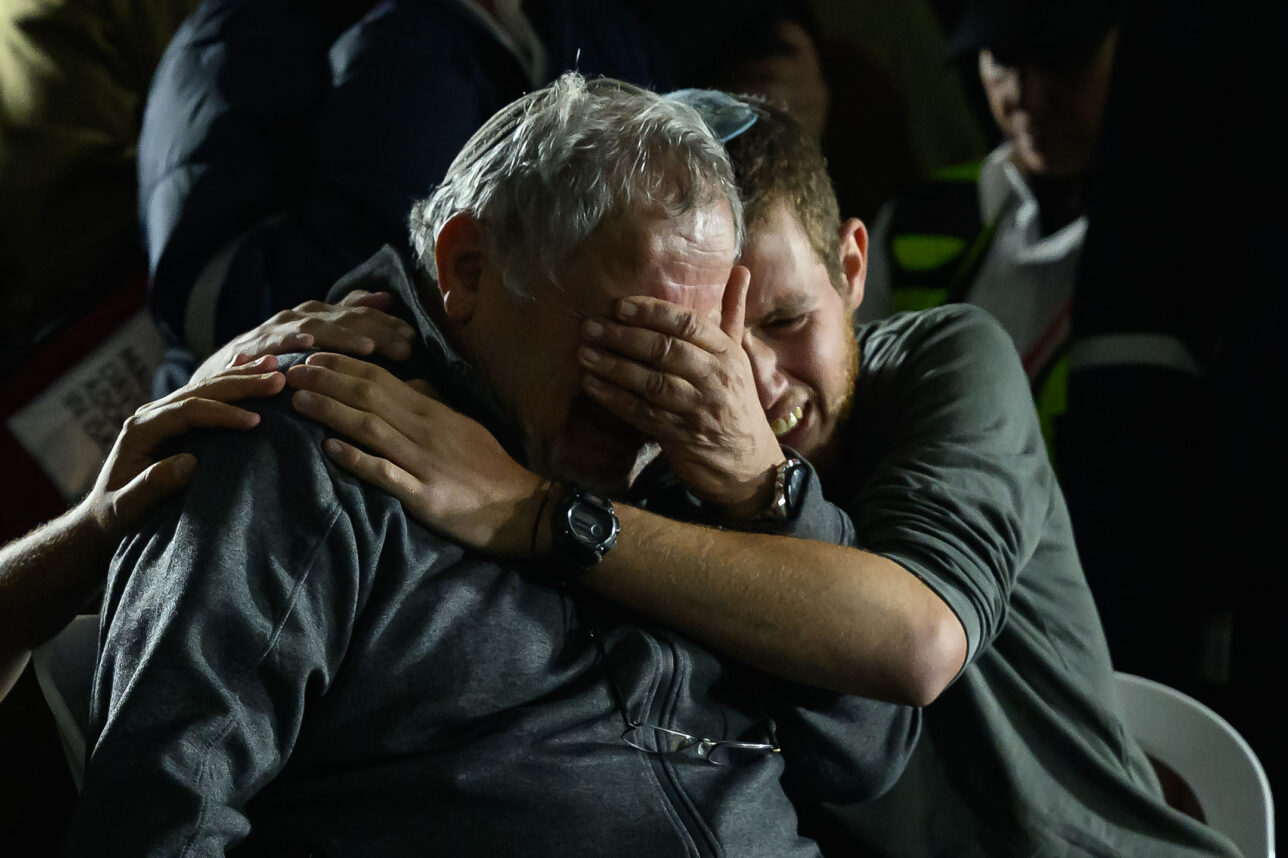

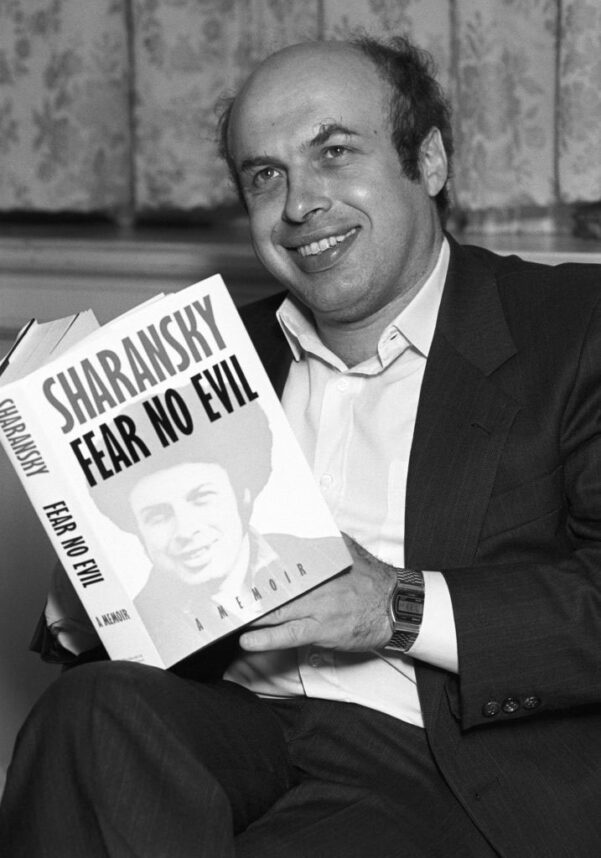



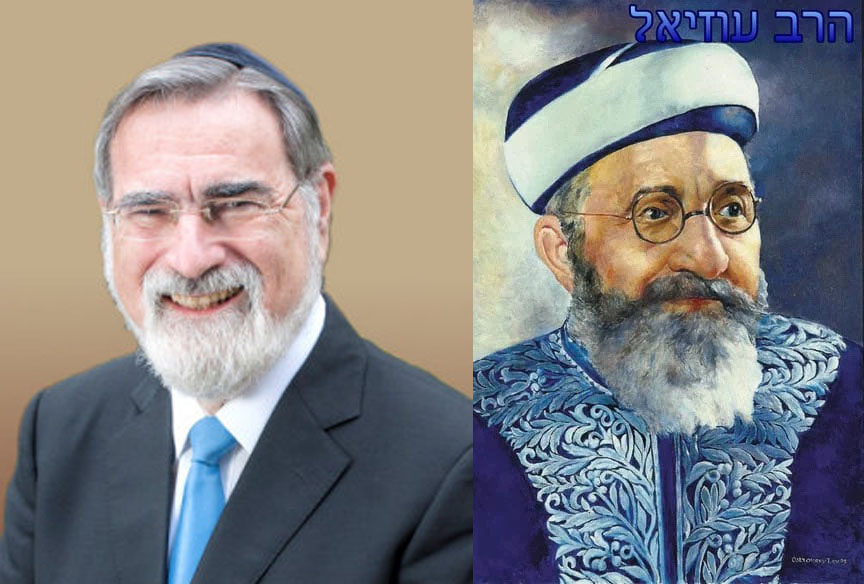
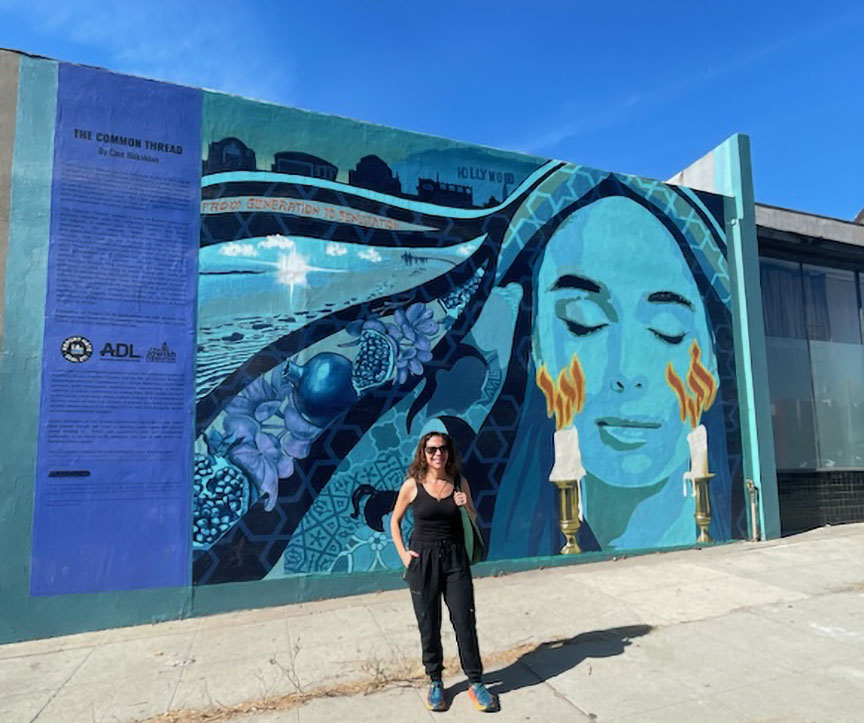
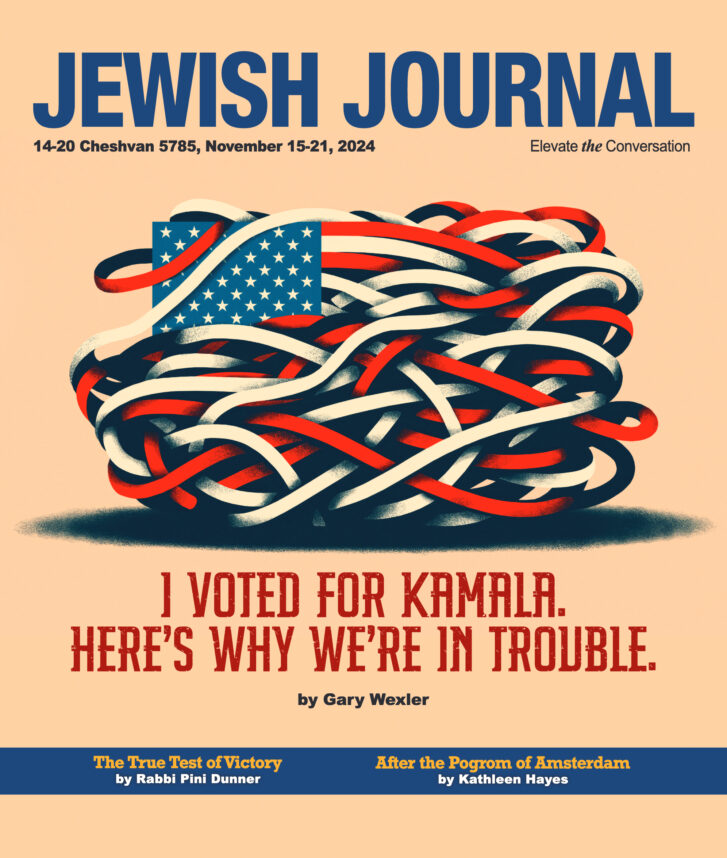
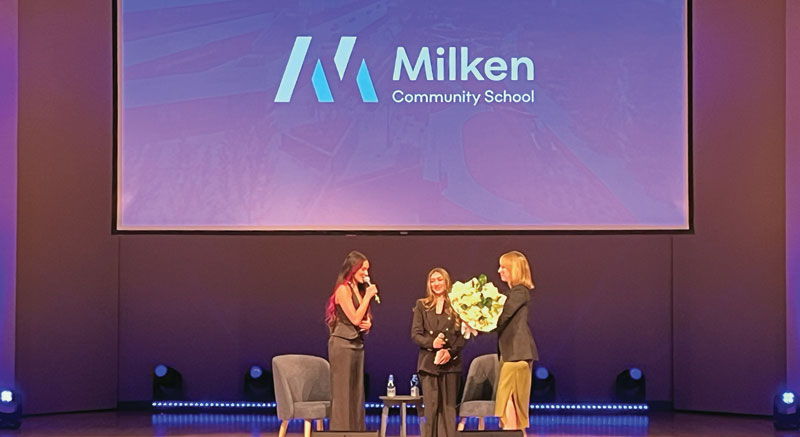





 More news and opinions than at a Shabbat dinner, right in your inbox.
More news and opinions than at a Shabbat dinner, right in your inbox.